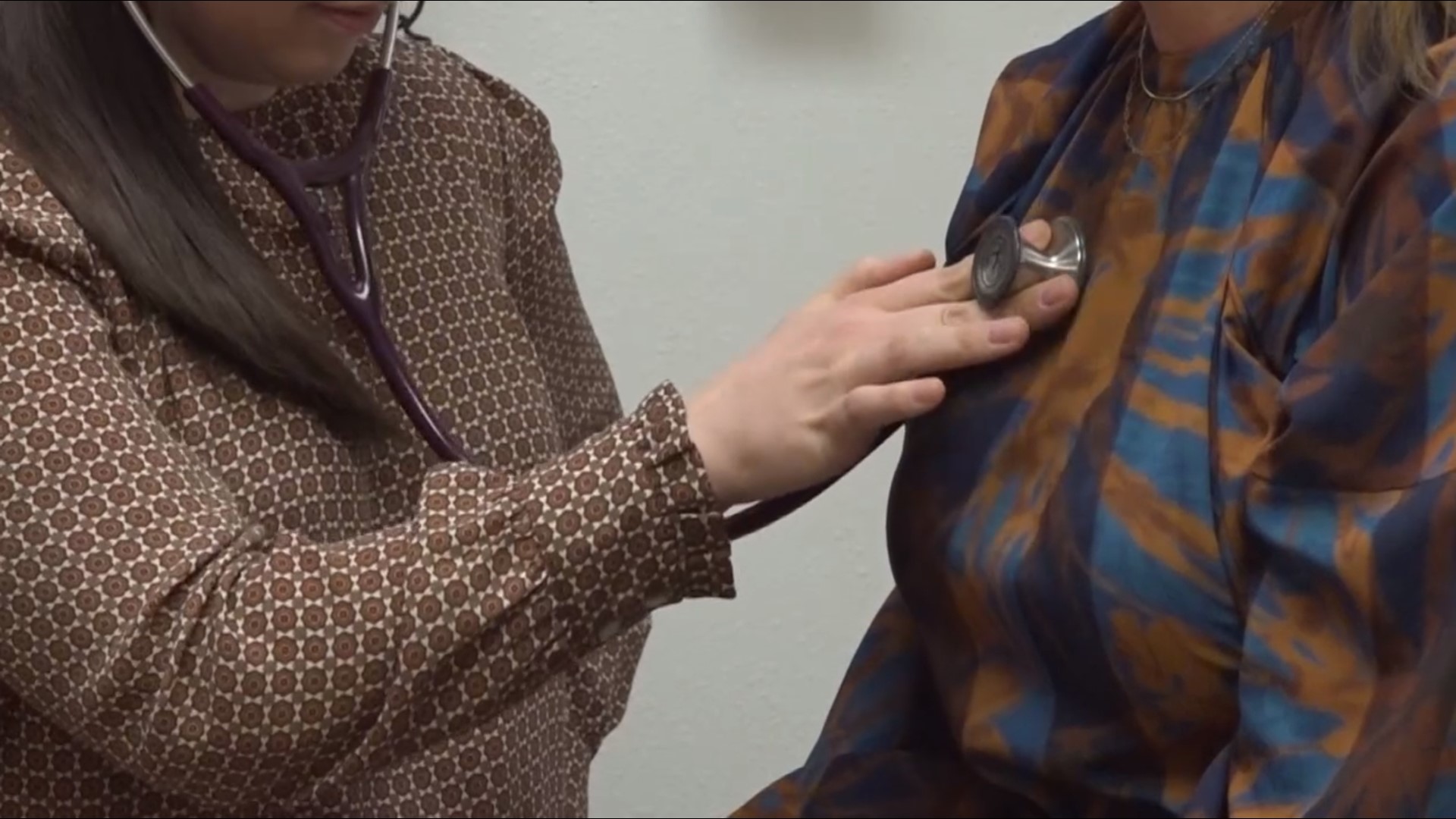MIDLAND, Texas — In recent years, multiple studies show that cervical cancer rates are on the rise. Over 13,000 American women are diagnosed with cervical cancer every year. Typically, cervical cancer is seen in patients aged 30-40, however, that number is also declining.
"Cervical cancer is a cancer of the lower uterus. It's the area where the birth canal is and it's a cancer caused by a virus that is sexually transmitted," says Physician Assistant Natalie Yaklin.
At the Midland Texas Oncology Center, healthcare providers like Yaklin treat women diagnosed with cervical cancer.
"It has been surprising to me to see these younger patients come through," she says. "Here at Texas Oncology, we are seeing the people that have actually progressed, usually, the other OBGYNs in the area are usually the ones catching it early, treating it early, so hopefully they don't have to come here."
One way to not end up in Yaklin's office is to have regular screenings and exams.
"Pelvic exams should be done on a yearly basis," Yaklin continues. "The pap smear is usually done every three to five years depending on the age group. The recommendation is that screenings begin at age 18 and throughout the 20s its every three years and 30s and up its every five years that we get a pap smear and pelvic exam."
Having regular exams helps catch cases early and allow for less dramatic courses of action.
"There are not a lot of symptoms in the early stages so we're looking at microscopic changes in the cells and so we really need those exams to catch it early because later on is when you start developing more symptoms including bleeding, pain, things of that nature," Yaklin said.
This is just another reason Yaklin encourages all women to be proactive with their health and get early screenings.
In addition to screenings and exams. Yaklin also recommends that patients take advantage of the HPV vaccine which can help prevent cervical cancer. The age cutoff used to be 26 years old, but the FDA raised it to 45 years old.

